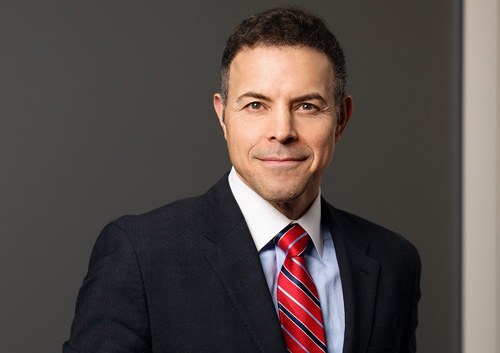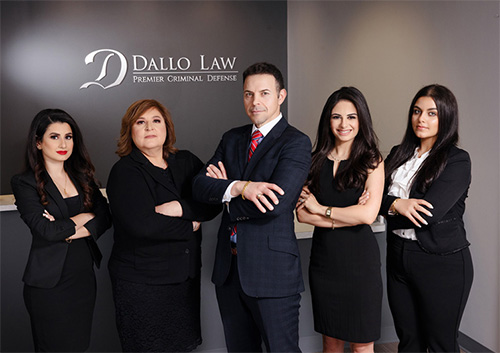Both state and federal laws impose restrictions on individuals who take or possess controlled substances and those with the authority to prescribe them. Although several laws guide the handling and use of controlled substances, they generally refer to those drugs as Schedule I, II, III, IV, and V substances.
Punishment can be severe when controlled substances are not handled exactly as prescribed. Those accused of mishandling controlled substances are often well-served by contacting a skilled criminal defense attorney.
Michigan Delivery Or Manufacture Of A Controlled Substance Attorney
If you were arrested for delivery or manufacture of a controlled substance in Michigan, you are likely facing a serious charge that could lead to years of imprisonment and thousands of dollars in fines. Your freedom is in jeopardy, so you should seek the legal guidance of a competent criminal defense attorney as soon as possible.
Thankfully, J. Dallo at Dallo Law, P.C. is a knowledgeable Oakland County drug crime lawyer who has represented hundreds of clients facing drug charges. He can discuss possible defense strategies and help you understand how the legal process works.
Do not tackle this alone. Contact Dallo Law, P.C. today at (248) 283-7000 to set up your first consultation of charge. Dallo Law, P.C. accepts clients throughout the greater Oakland County and Macomb County area including Sterling Heights, Bloomfield Hills, Birmingham, Rochester, Rochester Hills, Novi, and Clinton Township.
Information Center
- Elements Of A Delivery Or Manufacture Of Controlled Substances Charge
- Penalties For Delivery Or Manufacture Of Controlled Substances
- Defenses To A Michigan Charge Of Manufacture Or Delivery Of Controlled Substances
- Additional Resources
Elements Of A Delivery Or Manufacture Of Controlled Substances Charge
A person may rightfully be found guilty of mishandling controlled substances under Michigan’s Public Health Code upon a showing that the person:
- Manufactured, created, or delivered a controlled substance; or
- Intended to manufacture, create, or deliver a controlled substance, prescription form, or counterfeit prescription form.
Those licensed to prescribe controlled substances, such as psychiatrists, family physicians, nurse practitioners, and other medical providers can also be found guilty upon showing that they dispensed, prescribed, or administered a controlled substance for either:
- Illegitimate or non-professionally recognized purposes; or
- Reasons existing outside the scope of practice of the practitioner or licensee.
Whether a defendant is a medical provider or a non-practitioner, the potential consequences associated with a conviction are serious and should not be taken lightly.
Penalties For Delivery Or Manufacture Of Controlled Substances
In addition to the extensive penalties detailed below, offenders convicted of drug crimes automatically have their driver’s licenses suspended for at least six months.
The Schedule and the amount of any given narcotic determine potential penalties associated with a conviction. Controlled substance offenses are felonies, so potential penalties are severe regardless of the Schedule in question.
Schedule I and II Narcotics: when the amount or mixture of the substance is 1,000 grams or more, penalties may include the following:
- Up to life in prison; and/or
- Fines up to $1,000,000.
If the substance or mixture is at least 450 grams but less than 1000 grams, penalties include the following:
- Up to 30 years in prison; and/or
- Fines up to $500,000.
If the substance or mixture is at least 50 grams but less than 450 grams, penalties include the following:
- Up to 20 years in prison; and/or
- Fines up to $250,000.
If the substance or mixture is less than 50 grams, penalties include the following:
- Up to 20 years in prison; and/or
- Fines up to $25,000.
Penalties for crimes relating to substances classified under Schedule I and II can increase considerably if the defendant was also involved in another felony at the time of the offense.
Other Drugs Classified Under Schedules I, II, or III: Penalties include up to seven years in prison and fines up to $10,000. Unique penalties apply to marijuana and cocaine.
Substances Identified Under Law: Substances specifically identified under the law include amphetamines, methamphetamine, methylphenidate, and phenmetrazine, and their salts and isomers, and Ecstasy and MDMA. Penalties include prison time of up to 20 years and fines of up to $25,000.00.
Schedule IV: Penalties include up to four years in prison and fines up to $2,000.00.
Schedule V: Penalties include up to two years in prison and up to $2,000 in fines.
Prescriptions: Whether real or counterfeit, penalties for prescription offenses include up to seven years in prison and fines up to $5,000.00.
Often, the above crimes occur at the same time as the commission of other offenses that could lead to an increase in penalties, such as manufacturing drugs:
- In the presence of a minor;
- Involving a firearm;
- Producing hazardous chemicals and waste; and
- Within 500 feet of churches, residences, schools, or businesses.
When defendants must defend against multiple charges arising out of the same circumstances, potential penalties associated with a conviction dramatically increase. The skilled work of a criminal defense attorney can result in significantly reduced sentences.
Defenses To A Michigan Charge Of Manufacture Or Delivery Of Controlled Substances
To build the strongest defense possible, those accused of manufacturing or delivering a controlled substance should immediately contact a criminal defense attorney. Because this is a particularly dynamic area of criminal law, defenses may look very different depending on the facts of a particular case. Common defenses to drug charges include:
Lack of Knowledge: Defendants who lack knowledge about the manufacture or delivery of a controlled substance cannot be found guilty of certain crimes. This defense is often most appropriately applicable in cases where a defendant lives with or is closely connected with another person who committed the crime and the defendant was not aware of that person’s criminal behavior.
Weight of Substance: Sometimes, it is not disputed that a defendant committed the crime. Instead, the weight of the substance can be the issue determining the penalty. For example, if a prosecutor alleges that the defendant manufactured over 450 grams of a Schedule I drug, a defense might be that the real amount was under 450 grams. The result of the determination can have massive impacts on the penalties that the defendant will face if convicted.
Constitutional Violations: All criminal defendants are afforded constitutional rights. The role of a criminal defense attorney is to uphold the defendant’s constitutional rights and find potential flaws in the prosecution’s case. For example, drug crimes are subject to constitutional concerns related to searches and seizures, investigations, and improper questions. A skilled criminal defense attorney will identify any constitutional violations and use procedural knowledge to make solid arguments in court. Even if a case proceeds to trial, an attorney can work to suppress physical evidence, witness testimony, and any other evidence that is improper, which can lead to an acquittal or dismissal under certain circumstances.
Additional Resources
Jury Instruction For Manufacturing Or Delivering Controlled Substances 12.1 | Michigan Supreme Court — Jury instructions are instructions that the judge reads to the jury. Instructions educate jurors on the law and define elements in statutes.
Addiction Project | Michigan Health & Human Services — Addiction often drives criminal activity. Sometimes as an alternative to extensive prison time, offenders can attend treatment programs for addiction outside a prison setting. The Michigan Department of Health and Human Services provides numerous resources for individuals in need of treatment, including location sites, providers, and potential sources of insurance.
Bloomfield Hills Delivery Or Manufacture Of A Controlled Substance Lawyer | Oakland County, MI
If you are facing charges for delivery or manufacture of a controlled substance, it is extremely important that you hire an expert who understands the criminal justice system. At Dallo Law, P.C., Oakland County criminal defense lawyer J. Dallo strives to avoid a conviction in every case. He will work hard to negotiate a reduction or dismissal of your charges.
Call (248) 283-7000 to arrange a consultation with Dallo Law, P.C. today. Dallo Law, P.C. practices criminal defense throughout the greater Oakland County and Macomb County area including Bloomfield Hills, Pontiac, Troy, Rochester, West Bloomfield Township, Warren, Sterling Heights, and Utica.









